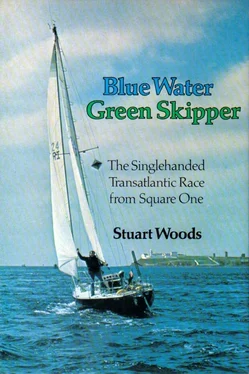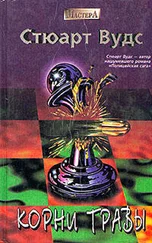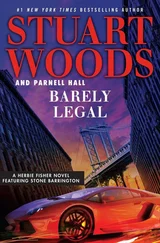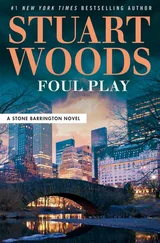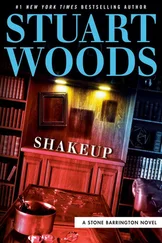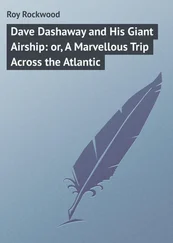At Quinnsworth I met Don Tidy, managing director; Jim Blanchard, financial director; and Des O’Meara, head of their advertising agency. We sat down around a conference table and exchanged pleasantries, then I talked for half an hour without taking a breath. I told them about the history of the race and about my boat and my plans. I told them everything I could think of. When I had finished they all asked questions, then Don Tidy excused himself for a few minutes. When he returned he said that, in association with a sister company, Penney’s, he thought they would like to sponsor my entry to the tune of £10,000. First, though, he would like me to meet separately with the two advertising agencies involved, explore the opportunities for publicity, and have them report back with their opinions. I canceled my return train reservation and booked a late-night flight back to Cork, then went to Des O’Meara’s offices with him. We were unable to reach the Penney’s ad man, as he was out of his office at a conference, but Des and I went through the whole project with his public-relations manager, and they pronounced themselves satisfied that the opportunity was a good one for Quinnsworth. They would meet with Penney’s man and describe the project to him. I had to get back to Cork, as we were sailing in four days and there was a lot to be done. I left the offices of Des O’Meara Advertising in a trance of elation.
I telephoned a young lady of my acquaintance, Noelle Fitzgerald, and told her I would trade her a good dinner in return for a lift to the airport. Noelle, who knows a good offer when she hears it, accepted, and soon we were ensconced at The Bailey, dining on Dublin Bay prawns and Puligny Montrachet ’66. At the airport I was in far too good a mood to leave Noelle in Dublin, so I took her with me. We abandoned her car in the Dublin Airport carpark, I got her a ticket, and we were off, she without so much as a toothbrush.
In Cork the next morning I first went to see a solicitor, Frank O’Flynn, recommended by my bank manager. He advised me to write to Barry Burke, stating my questions and objections on the boatyard’s bill, then stop payment on the check. I asked what that could lead to if we could not reach an amicable settlement. Frank said I could then deposit the full amount jointly with him and the yard’s solicitor, and the matter could be put to arbitration later, under the terms of my contract with the yard. I saw my bank manager again, John Rafferty of the Bank of Ireland in Douglas, an immensely helpful man, and made arrangements for funds in the event I should need them. I then wrote a polite letter to Barry, itemizing the points which I wished clarified on the bill and asking him not to deposit my check until we had met to discuss them. I then stopped payment on the check, following Frank O’Flynn’s advice. I took the letter to Southcoast Boatyard, knocked on Barry’s office door, placed the letter in his hand, and asked him to telephone me when he had had a chance to read it. He said he would do so.
That afternoon, Noelle and I plundered the Quinnsworth supermarket at the Douglas Shopping Center. Don Tidy had rung the manager and told him to give me £200 worth of anything I needed. I had intended to buy our food in England, where it is cheaper, to Shirley Clifford’s meal plan, which she had already prepared. Now, in the absence of a meal plan and in the presence of a license to shoplift, I tooled down aisle after aisle of the splendid store, grabbing whatever looked interesting for Shirley (not I) to cook, while Noelle trotted along in my wake with a stenographer’s pad and a pocket calculator. A couple of hours later I was checking nine shopping baskets past a bemused cashier, the whole thing coming to £199.74. At one point I heard a little girl say to her mother, “Mummy, that man must have lots of children.”
Back at Drake’s Pool I worked with Nick until nine on the boat, while Noelle cooked dinner for us. We all slept well that night.
Next morning, Noelle, bless her heart, boiled ten dozen eggs for five seconds each to seal them, then went through the medical kit to see that everything was in order. Then I dropped her off at the airport and picked up Bill and Tarka King at the bus station. We spent the rest of the day working on the boat, cleaning her out and fixing as much as we could. By nightfall she was ready to be loaded. We had dinner and went to bed early.
The following morning, while Bill and Tarka began loading food and gear, I visited the boatyard to talk with Barry Burke about the bill. He had not telephoned me. When I arrived I was told that Barry was home with a bad back, but a moment later he rang, and I was able to speak with him. I explained that I was there to discuss the bill, and in his absence I suggested that I go over it with John Harrington, pay him for whatever we were in agreement on, and defer any other discussion and payment until my return from the Azores, when we would have time to sit down together and talk about it. He said that would be quite all right. We chatted for a few minutes about the coming race and his plans for Cowes Week, then said goodbye.
I sat down with John Harrington and went carefully over the bill. We found £390 in overcharges, which John agreed to. I gave him a check for £760, leaving a balance of about £1,100 to be settled on my return from the Azores. I left the yard in good spirits, vastly relieved that we had reached at least a partial settlement without a fight, and hopeful that we would be able to thrash out the rest amicably when I returned.
Ron came sailing with us in the afternoon for an hour, and in the Force six and seven winds blowing in the harbor we all managed to glean new information from him. We set Fred, as I had begun to call the Hasler, self-steering, and he pointed us unerringly at a perch across the harbor, sailing right up to it. Ron pronounced himself impressed.
We spent the remainder of the day packing food into plastic shopping bags and stowing it on the boat. Things were moving well for our planned departure mid-afternoon the next day, Friday. I sometimes wonder what would have happened if we had left on time, whether things would have turned out differently. Maybe so, probably not. When enough small coincidences pile up and affect circumstances, it is called Fate.
As it was, we finished our loading on Friday in time to sail, but we were tired. We had planned to stop and rest for a day in the Scilly Isles, but we hadn’t been able to get a large-scale chart of the islands in time, and Bill was worried about going in without it, so we stayed in Drake’s Pool for another night, and were invited to Coolmore House for a drink before dinner by Worth and Pasha Newenham.
Pasha and Bill King had known each other since Pasha was a Wren and Bill a submarine commander, both stationed in Ceylon, during World War II. We sat in the handsome drawing room of Coolmore, bathed and shaved, sipping sherry and listening to Bill and Pasha reminisce. The boat was ready. I felt a lovely sense of completion and contentment and expectation.
I was just beginning to daydream about what the Azores would be like when Mark Newenham, Worth’s elder son, came in and said that Nick wanted to see me outside. I thought that, for some reason, he wouldn’t be able to come to dinner, and I was already feeling disappointed as I walked out the door. But Nick’s face was grave. “I hate to be the bearer of bad tidings,” he said (oh my God, I thought, the boat’s aground again, or sinking!), “but John Harrington is down at Drake’s Pool on a boat with a solicitor, a court official, and a policeman, and they plan to tow your boat away.” They had been trying to slip the mooring, when Nick had rowed out and asked them to wait until I could be summoned.
Thanking heaven that I had prepared for something like this, I rang Frank O’Flynn, and he promised to come straightaway. I had another glass of sherry, then went down to the cottage. The two boats were tied together, and they were all sitting out there, chatting with Nick. They declined to come ashore when invited; I declined to go out to the boat until Frank O’Flynn arrived. I sat down on the riverbank with Bill and Tarka, and presently Frank appeared.
Читать дальше
